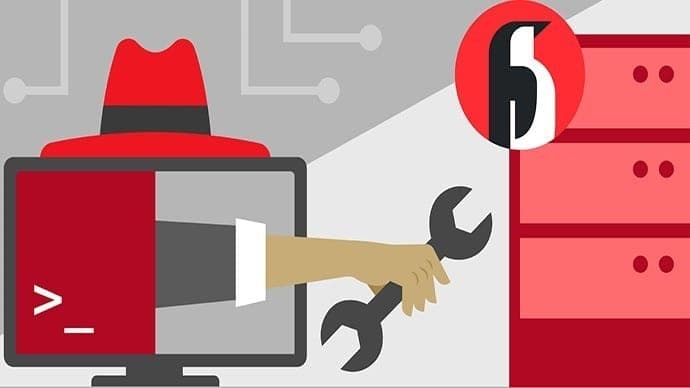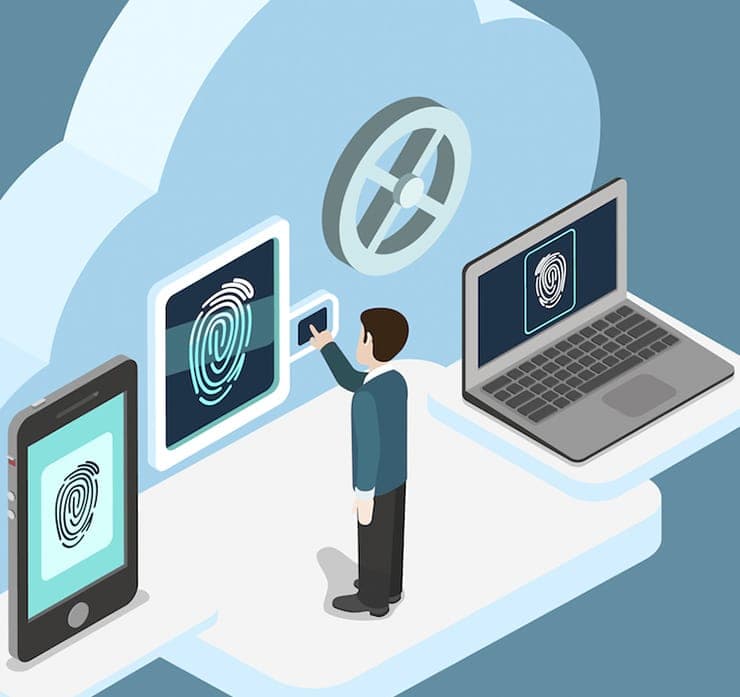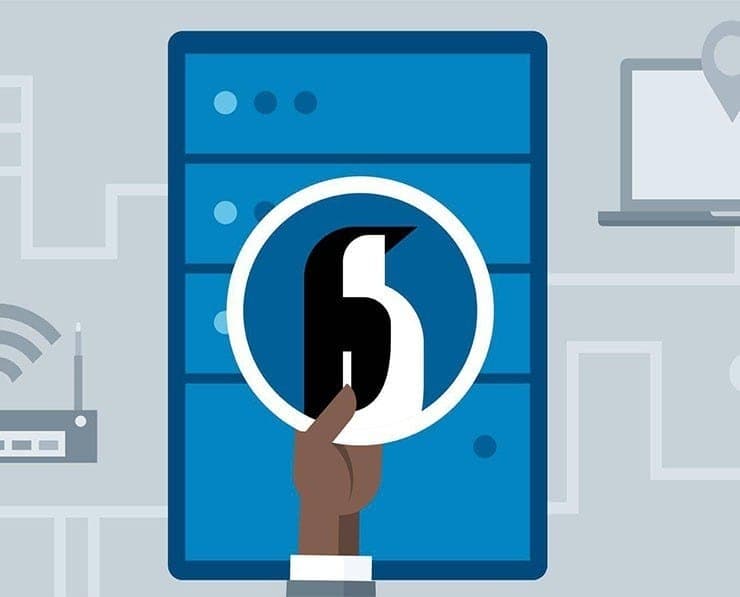Student Feedback
LX0-103: CompTIA Linux+ Powered by LPI 1 Certification Video Training Course Info
From Beginner to Pro: LX0-103 CompTIA Linux+ Hands-On Course
Comprehensive Linux+ LX0-103 course offering hands-on training, exam preparation, and career-ready Linux administration skills.
What you will learn from this course
• Understand Linux system architecture and hardware components
• Learn how to interact with Linux using command-line tools
• Configure and manage kernel modules and devices
• Gain skills to troubleshoot system startup and initialization issues
• Install and manage software packages in Linux distributions
• Understand and apply file system hierarchy and permissions
• Configure essential Linux services for system management
• Develop confidence to perform basic administrative tasks in Linux
Learning Objectives
The primary objective of this training is to prepare learners with the knowledge and skills required to work confidently with Linux operating systems in enterprise and personal computing environments. The course builds a strong foundation in system architecture, installation, command-line management, and service configuration. It focuses on practical, hands-on experience, enabling learners to understand not only how to execute Linux commands but also why they work in particular ways.
By the end of the course, learners will be able to identify and manage hardware devices, analyze the boot process, install and update software packages, and maintain file systems. They will also gain proficiency in handling user permissions, managing services, and performing security configurations. The course ensures that students are ready to operate Linux systems independently and are well-prepared to pass the CompTIA Linux+ LX0-103 exam.
Target Audience
This course is intended for individuals seeking to begin or strengthen their Linux administration skills. It is suitable for IT professionals who want to enhance their understanding of open-source systems, as well as students or enthusiasts aiming to build careers in system administration, cybersecurity, or DevOps.
It is especially beneficial for:
• Aspiring Linux system administrators who are new to the Linux environment
• IT technicians transitioning from Windows or macOS systems to Linux-based infrastructures
• Network administrators seeking to integrate Linux servers into existing networks
• Security professionals who need foundational Linux knowledge for cybersecurity tasks
• Developers who deploy or manage applications on Linux systems
• Anyone preparing for the CompTIA Linux+ certification exam
Overview
Linux has become the backbone of modern computing environments, powering servers, cloud infrastructure, embedded devices, and even mobile systems. The CompTIA Linux+ LX0-103 training course provides a structured approach to mastering the fundamental concepts of Linux system administration. It introduces learners to essential topics such as system architecture, boot processes, installation, file management, and package handling.
At the beginning of the training, learners are introduced to the structure of the Linux operating system and how it interacts with hardware components. Understanding the relationship between the kernel, hardware, and user applications forms the basis of all system-level operations. Learners explore how kernel modules are loaded, configured, and managed to support devices dynamically without rebooting the system.
The course then progresses to explain the Linux boot process in detail. It covers how a system transitions from the power-on stage to a fully functional operating state. Students learn about BIOS and UEFI interfaces, bootloaders like GRUB, and the initialization systems such as SysVinit and systemd. This understanding enables them to diagnose and resolve common boot issues that may occur during startup.
Next, the course focuses on the installation and package management process. Learners are introduced to different Linux distributions and the distinctions between package formats such as RPM and DEB. They learn how to install, update, and remove packages using command-line tools like rpm, dpkg, apt, and yum. Additionally, compiling software from source code is covered to provide insight into how Linux applications are built and deployed manually.
File system management forms another critical part of the course. Learners explore how Linux organizes data through the File System Hierarchy Standard, which defines the purpose and structure of directories like /bin, /usr, /var, and /etc. They learn how to mount and unmount devices, create file systems, and manage storage partitions. Understanding disk quotas, permissions, and symbolic links helps learners maintain secure and organized environments.
As the course progresses, attention is given to shell operations and command-line proficiency. The command line is the primary interface for most Linux administrative tasks, and mastering it is essential. Learners practice navigation, file manipulation, process management, and text filtering using powerful utilities such as grep, awk, and sed. They develop scripts and command combinations that automate routine administrative tasks.
Essential system services are introduced next, focusing on processes that keep the operating system functional and secure. Learners study how to manage logs using rsyslog and journalctl, schedule tasks with cron and at, and configure system time using NTP or chrony. The course explains how to manage system services through initialization scripts or systemd units and introduces backup and recovery strategies using tar, rsync, and dump utilities.
Security is a major focus in Linux administration. Learners explore the concept of file permissions, ownership, and access controls. They configure user accounts and manage groups, learning how to secure system access using SSH keys and sudo privileges. Basic firewall configurations using iptables or firewalld are also introduced to enhance system protection.
By understanding these core topics, learners build a holistic view of Linux system management. The course emphasizes troubleshooting skills through practical examples that require analyzing logs, monitoring processes, and resolving common system errors. Real-world scenarios help reinforce theoretical knowledge and prepare students for real administrative challenges.
Each lesson in the training is designed to be hands-on and practical. Learners are encouraged to set up their own virtual Linux environments to practice commands and configuration tasks. This approach helps them gain confidence in executing commands safely without affecting live systems. The gradual progression from fundamental concepts to advanced administrative tasks ensures that even beginners can follow the course successfully.
Upon completing the training, learners will have the ability to configure, maintain, and troubleshoot Linux systems efficiently. They will be able to install software, manage hardware devices, understand system logs, and secure their environments. The course aims to bridge the gap between theoretical understanding and operational competence, allowing participants to apply their knowledge in professional contexts immediately.
This training not only equips participants with the technical skills necessary for the CompTIA Linux+ certification but also builds a solid foundation for future learning. The competencies gained here prepare learners for more advanced Linux certifications and roles that involve server management, cloud deployment, and network administration. The comprehensive nature of this course ensures that learners develop both the conceptual understanding and the technical confidence to manage Linux systems effectively in diverse environments.
Prerequisites
Before starting this course, learners should have a basic understanding of general computer operations such as working with files, folders, and basic operating system navigation. Familiarity with fundamental networking concepts like IP addresses, DNS, and ports will also be helpful, but not mandatory.
No prior Linux experience is required, but an interest in open-source technologies and command-line interfaces will enhance learning outcomes. It is recommended that learners have access to a computer capable of running virtual machines so they can install and practice with a Linux distribution such as Ubuntu, CentOS, or Debian. Having this setup allows learners to perform all exercises and hands-on tasks in a safe and controlled environment.
A willingness to experiment, explore, and troubleshoot issues independently will contribute significantly to mastering the material. Since Linux administration often involves problem-solving, learners who are curious and methodical in their approach will find this training especially rewarding.
Course Modules / Sections
The course is structured into multiple modules that progressively develop the learner’s knowledge and practical competence in Linux system administration. Each module focuses on a specific set of skills aligned with the CompTIA Linux+ LX0-103 exam objectives. The modules are arranged in a logical order, beginning with fundamental system concepts and gradually advancing to complex administrative tasks. The hands-on nature of each module ensures that learners not only understand theoretical principles but can also apply them in real-world scenarios.
The first module introduces system architecture and hardware configuration. Learners study how Linux interacts with system hardware components and how kernel modules enable communication between the operating system and devices. They learn about hardware detection, BIOS and UEFI configuration, and how to load or unload kernel modules dynamically. The use of commands like lspci, lsusb, and lsmod forms a foundation for diagnosing hardware-related issues. Understanding device files in the /dev directory and the role of udev in modern Linux distributions helps learners identify and manage connected devices efficiently.
The second module covers the Linux boot process, initialization, and shutdown procedures. It explores how the system transitions from powering on to running a fully functional user environment. Learners gain insight into the bootloader mechanisms, especially GRUB and GRUB2, and understand how kernel parameters affect system startup. They study system initialization systems, including SysVinit and systemd, and learn to manipulate runlevels and system targets. By experimenting with boot parameters, viewing logs, and recovering from boot failures, learners develop critical troubleshooting skills essential for system maintenance.
The third module focuses on Linux installation and package management. Learners are guided through partitioning storage devices, creating filesystems, and setting up Linux distributions. They gain experience with command-line tools like fdisk, gdisk, and parted, learning how to manage disk partitions safely. The module also introduces package management systems, including RPM and DEB-based tools such as rpm, dpkg, yum, and apt. Learners practice installing, updating, and removing software packages, managing dependencies, and verifying installation integrity. Compiling software from source provides insight into how open-source applications are built and customized.
In the fourth module, attention shifts to managing devices, filesystems, and understanding the File System Hierarchy Standard. Learners examine how Linux organizes directories and files, ensuring consistency across different distributions. They practice mounting and unmounting devices, creating and repairing filesystems, and managing quotas. File permissions, ownership, and symbolic links are discussed in depth to build a strong understanding of access control. This module reinforces the importance of filesystem integrity and introduces diagnostic tools like fsck, df, and du.
The fifth module is dedicated to mastering the Linux command line and essential GNU/Unix commands. It emphasizes the power of text-based interaction with the system and teaches learners how to navigate directories, manipulate files, and manage processes efficiently. Commands like cp, mv, rm, grep, awk, sed, and find are explored in practical exercises. Learners also study input/output redirection, piping, and process control techniques using commands such as ps, top, kill, bg, and fg. These skills are crucial for performing administrative tasks and automating system operations.
The sixth module introduces essential system services and maintenance tasks. Learners explore the management of system logs, job scheduling, backups, and network services. They learn to configure rsyslog and journalctl for log management and use cron and at for scheduling automated jobs. Time synchronization using NTP or chrony ensures that systems maintain accurate time, a critical aspect for logging and security. Learners also perform file backups and restores using tar, rsync, and dump utilities. Configuring SSH and remote access tools helps learners manage systems securely from remote locations.
The seventh module centers on system security, permissions, and access controls. Learners delve into user and group management using commands like useradd, usermod, and groupadd. They learn to enforce password policies, set permissions, and use Access Control Lists for fine-grained access management. Configuring SSH for secure communication, using sudo for delegated administrative privileges, and managing basic firewalls with iptables or firewalld enhances the learner’s ability to protect systems from unauthorized access. This module strengthens awareness of Linux security fundamentals.
The final module integrates all previously learned skills into troubleshooting and practical scenarios. Learners apply diagnostic methods to resolve boot issues, file permission conflicts, network connectivity problems, and service failures. They practice reading log files, monitoring processes, and identifying system bottlenecks. Through realistic case studies, learners gain confidence in applying their knowledge to real-world problems, preparing them for both professional environments and the certification exam.
Each module is interconnected, ensuring that learners build upon previously acquired skills to achieve a comprehensive understanding of Linux system administration.
Key Topics Covered
The course covers a wide range of topics essential for Linux administration and is fully aligned with the LX0-103 exam objectives. Learners begin with an introduction to system architecture, which explains the relationship between the kernel, hardware, and software. They explore how Linux handles hardware communication through kernel modules and device files. Understanding this structure allows administrators to configure and troubleshoot devices efficiently.
A major area of focus is the boot process. Learners study every stage of system startup, from BIOS initialization to kernel loading and service activation. They gain the ability to modify boot parameters, recover systems in single-user mode, and interpret boot logs. By learning how to configure and repair GRUB, they develop the skills needed to handle boot failures and system recovery tasks.
Installation and package management form another cornerstone of the course. Learners understand different installation types, partitioning schemes, and filesystem choices. They gain proficiency in package management systems used by major distributions, mastering commands to install, update, and remove software efficiently. Compiling from source code is also introduced to give learners a deeper understanding of how open-source applications are created and maintained.
File system management and the File System Hierarchy Standard are key areas where learners gain practical skills. They learn how Linux organizes system files, configuration data, and user directories. The ability to mount and unmount partitions, manage quotas, and repair file systems gives learners confidence in maintaining system storage. Permissions, ownership, and symbolic links are explored in detail to ensure learners can manage access securely and effectively.
Mastering the command line and core GNU/Unix utilities is emphasized throughout the course. Learners use the command line to perform file operations, process management, and text manipulation. They practice combining commands using redirection and pipes to automate complex operations. Understanding these commands is essential for working efficiently in any Linux environment.
System services and maintenance form another vital topic area. Learners explore how to manage system logs for monitoring and troubleshooting, schedule jobs using cron, and configure time synchronization. They also learn to set up backup and restore strategies and manage remote access using SSH. Each of these tasks contributes to keeping a Linux system stable, secure, and operational.
Security and user management are integral to system administration. Learners study how to create, modify, and manage user accounts and groups, configure permissions, and implement security policies. They practice setting up SSH key authentication, managing sudo privileges, and configuring firewalls to protect system integrity.
Finally, troubleshooting techniques bring together all the knowledge gained throughout the course. Learners identify and resolve common issues related to boot failures, permissions, networking, and hardware configuration. They develop systematic problem-solving approaches, using logs and system tools to locate and fix errors.
These topics collectively ensure that learners develop both the theoretical understanding and practical competence required for Linux system administration and certification readiness.
Teaching Methodology
The teaching methodology of this course is designed to provide a balance between conceptual understanding and practical experience. The goal is to ensure learners can apply what they learn immediately in real environments. Each topic is introduced through explanation, demonstration, followed by practical exercises that reinforce understanding.
Instructors begin each module with an overview of the concepts, ensuring learners grasp the theoretical foundations before engaging in hands-on practice. Visual aids such as diagrams and command demonstrations are used to simplify complex topics like the boot process, kernel module management, and file system structures. The emphasis is on practical learning, where learners perform exercises on actual or virtual Linux systems.
Hands-on labs are the cornerstone of this methodology. Each module contains multiple lab activities that align with the concepts covered in lectures. For example, when learning about package management, learners practice installing and removing software using various package tools. When studying the boot process, they modify GRUB configurations and recover a system that fails to boot properly. These exercises help learners gain confidence and proficiency.
Peer learning is encouraged through collaborative discussions and group activities. Learners can share experiences, troubleshoot issues collectively, and discuss different approaches to problem-solving. This interactive approach builds a stronger understanding of how to apply theoretical knowledge to practical scenarios.
Quizzes and mini-assessments are included after each module to evaluate comprehension and reinforce key points. Instructors provide feedback to help learners identify areas for improvement. Continuous practice and reinforcement of commands and concepts ensure long-term retention.
Real-world examples are integrated into the teaching process. Instructors relate theoretical topics to real administrative challenges faced in industry settings, such as managing multiple users, securing systems, or performing backups. This relevance helps learners connect classroom knowledge to practical use cases.
The course is suitable for both classroom and online learning environments. In online settings, learners have access to virtual labs where they can experiment safely without risk to production systems. Recorded demonstrations and reference materials support self-paced learning. The flexible structure allows learners to progress according to their own pace and revisit challenging topics as needed.
By combining guided instruction, hands-on practice, peer learning, and real-world examples, this methodology ensures that learners develop the confidence and technical skills needed to administer Linux systems effectively.
Assessment & Evaluation
Assessment and evaluation in this course are designed to measure both theoretical knowledge and practical ability. The goal is to ensure learners not only understand Linux concepts but can apply them effectively in real-world environments. The evaluation process is continuous and multifaceted, covering quizzes, lab performance, and comprehensive tests.
Short quizzes follow each module to test comprehension of recently covered topics. These quizzes include a mix of multiple-choice and command-based questions, focusing on the ability to recall syntax, interpret output, and understand system behaviors. Regular testing keeps learners engaged and helps identify areas that need more attention.
Practical lab assessments form a major component of the evaluation strategy. Learners complete tasks such as configuring kernel modules, managing partitions, installing packages, or resolving boot problems. Each lab has measurable outcomes that demonstrate the learner’s proficiency. Instructors observe and review lab submissions to provide feedback and ensure that the correct methods are used.
A mid-course assessment evaluates learners on cumulative topics from the initial modules, such as system architecture, boot process, and basic command-line operations. This assessment helps gauge overall progress and readiness for more advanced sections of the course.
Toward the end of the course, learners undertake a comprehensive final assessment that simulates real exam conditions. This includes a written test that covers theoretical knowledge and a practical component requiring learners to complete administrative tasks on a Linux system. The combination of both ensures that learners can integrate knowledge and skills effectively.
Scenario-based evaluations are included to develop critical thinking and problem-solving abilities. Learners are given real-world situations, such as diagnosing system startup failures, correcting permission issues, or restoring data from backups. These exercises assess not just technical ability but also analytical reasoning and decision-making skills.
Continuous feedback from instructors throughout the course encourages improvement and helps learners build confidence. Participation in discussions, engagement in lab exercises, and consistent practice contribute to final evaluation outcomes.
The final performance evaluation combines all components—quizzes, lab results, mid-course tests, and the final exam—to determine overall competence. Learners who complete the assessments demonstrate readiness for the CompTIA Linux+ LX0-103 certification and practical Linux administration tasks.
This evaluation framework ensures that learners are not only prepared for the certification exam but also capable of managing real Linux systems efficiently, making them valuable assets in any technical environment.
Benefits of the Course
The LX0-103 CompTIA Linux+ Powered by LPI 1 course provides numerous benefits for learners pursuing careers in information technology, systems administration, and open-source environments. One of the most significant advantages is the comprehensive foundation it builds in Linux systems, which are widely used across the IT industry. Through structured learning and practical exercises, learners acquire essential skills that extend beyond certification preparation and contribute directly to workplace competence.
A primary benefit of this course is its alignment with industry standards. The course content follows the official CompTIA Linux+ LX0-103 exam objectives, ensuring that every learner gains knowledge recognized by employers worldwide. The certification itself is well-respected in the IT field and demonstrates a professional’s ability to manage, maintain, and troubleshoot Linux systems effectively. By completing this course, learners become equipped with knowledge that is directly applicable to real-world roles, including system administrator, technical support specialist, and IT technician.
Career advancement is another key advantage. Linux expertise is increasingly sought after in areas such as cloud computing, cybersecurity, and DevOps. Organizations using technologies like AWS, Azure, or Google Cloud rely heavily on Linux-based infrastructure. Having Linux+ certification provides an edge when applying for roles that demand command-line proficiency and system management expertise. The course serves as a stepping stone toward advanced certifications like LPIC-2 or Red Hat Certified System Administrator, broadening professional growth opportunities.
The course also encourages independence and adaptability. Linux environments vary across distributions, and administrators must often adjust to different systems such as Ubuntu, CentOS, or Debian. The training equips learners with transferable skills that apply across all major Linux distributions, allowing them to operate comfortably in diverse environments. This adaptability increases job flexibility and makes learners more valuable within organizations that use multiple systems.
From an academic standpoint, this course develops a strong conceptual understanding of how operating systems function. Learners explore topics such as process management, system architecture, and file structures, which strengthen their overall IT knowledge base. These insights are beneficial for learners pursuing further studies or certifications in networking, cloud technologies, or system engineering.
The course also builds confidence in using the command line interface, which is a core component of Linux administration. Many beginners find command-line operations intimidating, but through progressive learning and practice, learners gain fluency in navigating and controlling Linux systems efficiently. This confidence extends to automation and scripting, which are vital skills in modern IT environments.
Another major benefit is the cost-effectiveness of Linux training. Linux is open-source, meaning learners can practice on free distributions without additional licensing costs. The ability to experiment freely allows learners to explore and learn without restrictions, enhancing their engagement and learning outcomes.
Additionally, this course fosters problem-solving independence. Since Linux often requires users to diagnose issues using logs and system tools, learners develop a proactive approach to finding and implementing solutions. This independence translates into higher productivity and reliability in professional settings.
Finally, completing this course provides a globally recognized certification that validates both knowledge and hands-on ability. It demonstrates to employers that the individual possesses practical Linux administration skills, a strong understanding of system fundamentals, and a commitment to professional development. Overall, the LX0-103 training offers both immediate and long-term career advantages, making it a valuable investment for anyone pursuing a technical path in IT.
Course Duration
The LX0-103 CompTIA Linux+ Powered by LPI 1 course is designed to be comprehensive yet flexible, accommodating different learning styles and schedules. The duration of the course typically ranges from 30 to 40 hours of total study time, depending on the learner’s prior experience and study pace. This duration ensures sufficient time for conceptual understanding, practical exercises, and review.
For instructor-led training, the course is commonly delivered over five full days of intensive learning. Each day covers specific modules, combining lectures with hands-on practice sessions. Learners spend approximately six to eight hours daily engaging in lectures, demonstrations, and guided labs. This format is ideal for those who prefer structured, immersive learning environments and direct interaction with instructors.
In self-paced or online learning formats, the course duration may extend over several weeks to allow flexibility. Learners can progress through the modules at their own pace, spending additional time on challenging topics or repeating labs for reinforcement. On average, a self-paced learner may complete the course within four to six weeks, dedicating several hours per week to study and practice.
Each major topic is allocated sufficient time to ensure deep comprehension. For instance, system architecture and boot process modules typically take longer due to their complexity, while command-line exercises and package management modules may require extended lab practice. The balance between theory and practical application is carefully maintained throughout the schedule.
In addition to core instruction, learners are encouraged to allocate extra time for independent lab work. Practicing commands, experimenting with configurations, and troubleshooting simulated issues are essential for mastering Linux administration. Most learners spend an additional 10 to 15 hours outside of class reinforcing these skills.
For training institutions, the course duration may also be adjusted based on the format of delivery. In boot camp-style programs, the course can be condensed into an intensive three-day session for advanced learners. In contrast, part-time evening classes may stretch over several weeks to accommodate working professionals.
Regardless of the schedule, each delivery format ensures comprehensive coverage of all exam objectives. The duration is sufficient to develop not only exam readiness but also real-world competence. Learners are expected to complete lab exercises, participate in discussions, and review theoretical content regularly to ensure long-term retention.
The course also includes time for review and assessment. Toward the end of the training, learners participate in mock exams and practical evaluations that mirror real-world administrative tasks. These activities help consolidate learning and identify areas requiring further study.
Ultimately, the duration of this course is structured to balance depth of understanding with flexibility. Whether pursued intensively over a few days or gradually over several weeks, the training ensures that learners gain the knowledge, practice, and confidence required to succeed both in certification and in professional environments.
Tools & Resources Required
To complete the LX0-103 CompTIA Linux+ Powered by LPI 1 course effectively, learners require access to specific tools and resources that support both theoretical learning and hands-on practice. These resources create a realistic environment for developing Linux administration skills and prepare learners for real-world scenarios.
The most essential resource is a computer system capable of running Linux. Learners can install Linux directly on their machines or use virtualization software to create a safe and flexible learning environment. Virtualization tools such as VirtualBox or VMware Workstation are recommended, as they allow multiple Linux distributions to run concurrently without altering the host system. Through virtual machines, learners can simulate complex administrative tasks, practice recovery procedures, and perform configuration experiments without risk.
A Linux distribution is required for all exercises. Common choices include Ubuntu, CentOS, Debian, or openSUSE, as these represent both Debian-based and Red Hat-based environments covered in the exam objectives. It is beneficial to install multiple distributions to understand the differences in package management systems and file structures.
Command-line proficiency is developed using terminal applications. Learners should have access to terminal emulators such as GNOME Terminal, Konsole, or xterm, depending on the chosen distribution. For remote administration practice, SSH tools like PuTTY or built-in Linux SSH commands are essential. These tools allow learners to experience secure connections and remote system management.
Text editors are critical for configuration and scripting exercises. Editors like Vim, Nano, and Emacs are standard on most Linux systems and are frequently used in administrative work. Learning how to navigate and edit configuration files in these editors enhances practical skill and comfort with Linux environments.
For system monitoring and troubleshooting, learners require access to diagnostic commands and utilities. Tools like top, dmesg, journalctl, and lsof are used for system analysis, while networking commands such as ping, netstat, and ifconfig assist in connectivity diagnostics. Access to these tools is integral to understanding how Linux systems behave and perform under different conditions.
Documentation resources also play an important role in learning. Linux includes built-in help systems such as man pages and info pages that explain commands and configuration options in detail. Learners are encouraged to explore these regularly to reinforce understanding. Online resources like official distribution documentation and community forums provide additional support for deeper study.
For lab exercises involving backups and system recovery, external storage or virtual disk space is useful. Learners should allocate sufficient disk space to simulate mounting, partitioning, and backup operations safely. Access to internet connectivity is beneficial for downloading packages, updates, and supplementary learning materials.
Instructors and institutions may also provide course materials such as lecture notes, slide decks, and lab guides. These structured resources guide learners through each module with examples and practical scenarios. Some courses include access to virtual lab environments or cloud-based platforms where learners can practice commands directly through a web interface.
Optional but beneficial tools include scripting environments and automation frameworks such as Bash and cron. Using these tools allows learners to automate administrative tasks and gain familiarity with Linux scheduling features.
Printed or digital reference guides, such as Linux command cheat sheets, also help learners recall syntax during practice sessions. Maintaining a personal command notebook for frequently used commands and troubleshooting steps is recommended for long-term learning retention.
Together, these tools and resources ensure a complete and immersive learning experience. By combining practical tools with theoretical materials, learners gain a balanced understanding of Linux administration. Properly equipped, they can perform all required exercises confidently, build valuable technical skills, and prepare effectively for the CompTIA Linux+ certification exam.
Career Opportunities
Completing the LX0-103 CompTIA Linux+ Powered by LPI 1 course opens a wide range of career opportunities in the information technology sector. Linux skills are among the most valuable and in-demand competencies in the global job market, particularly in industries that depend on open-source systems, cloud infrastructure, cybersecurity, and DevOps environments. The knowledge gained from this course equips learners to handle the responsibilities associated with maintaining and supporting enterprise-level Linux systems.
One of the most common career paths for certified professionals is that of a Linux System Administrator. This role involves managing the day-to-day operation of Linux servers, ensuring uptime, performance, and security. Administrators configure user accounts, manage file systems, monitor system logs, and perform updates and backups. Since Linux is widely used in enterprise environments, skilled administrators are required in nearly every industry, including finance, healthcare, education, and telecommunications.
Another prominent opportunity lies in the position of a Network Administrator. This role requires professionals to configure and maintain network devices, monitor performance, and troubleshoot connectivity issues. The Linux+ certification provides foundational knowledge of networking commands and services that are crucial for managing network-based systems and supporting secure communications. Organizations running hybrid or cloud-based networks often prefer candidates with Linux proficiency, as many routers, firewalls, and switches operate on Linux-based systems.
IT Support Specialists and Help Desk Technicians also benefit greatly from this certification. These professionals provide technical assistance to users and troubleshoot hardware or software issues. With Linux+ training, they gain the ability to resolve system errors, manage user permissions, and assist with configuration tasks, making them more versatile in multi-platform environments. Many companies operate a mix of Windows and Linux systems, and a technician with cross-platform expertise can bridge the gap between departments.
Cloud Computing and DevOps roles have also become popular career destinations for Linux-certified individuals. Cloud infrastructure, including services provided by AWS, Google Cloud, and Microsoft Azure, largely depends on Linux. Professionals working as Cloud Engineers or DevOps Specialists use Linux for managing virtual instances, automating deployments, and integrating systems using shell scripts. The foundational Linux knowledge from this course helps learners transition smoothly into these advanced domains.
Cybersecurity professionals also rely heavily on Linux systems for both defensive and offensive operations. Security Analysts, Penetration Testers, and Ethical Hackers often work in Linux environments due to its stability and open-source flexibility. Linux+ certification provides the necessary background to understand permissions, user management, and system monitoring, which are critical skills for maintaining secure infrastructures.
System Engineers and Infrastructure Specialists can use this certification as a stepping stone toward designing and implementing large-scale systems. These roles demand deep knowledge of server environments, virtualization, and automation. The practical experience gained during the course, including managing services and configuring system settings, prepares learners to perform these responsibilities effectively.
For individuals interested in software development, Linux knowledge is invaluable. Many development environments and servers run on Linux, and understanding how the operating system functions can greatly enhance productivity. Developers familiar with Linux command-line tools and scripting have an advantage when configuring environments, testing applications, and managing deployments.
Technical Trainers and Instructors can also build careers by teaching Linux fundamentals to others. The certification demonstrates verified knowledge and competence, enabling professionals to guide students or employees in mastering Linux skills. Many organizations and training institutions seek certified instructors who can deliver structured and credible Linux training programs.
Freelance opportunities also exist for Linux professionals. Many small and medium-sized businesses require part-time system maintenance, security auditing, or server configuration services. Certified individuals can offer consultancy, set up web servers, manage data backups, and troubleshoot system errors remotely. The demand for Linux support continues to grow as more organizations adopt open-source technologies to reduce costs and improve flexibility.
Overall, the career landscape for Linux+ certified professionals is broad and continuously expanding. From entry-level positions such as Junior Administrator or IT Support Technician to advanced roles like DevOps Engineer or Security Analyst, the certification serves as a gateway to long-term growth. As technology evolves and cloud-based solutions dominate modern infrastructure, Linux professionals will remain integral to the digital transformation of businesses worldwide.
Conclusion
The LX0-103 CompTIA Linux+ Powered by LPI 1 course provides a complete foundation for individuals seeking to establish or advance their careers in Linux system administration. It combines theoretical knowledge with extensive hands-on practice, ensuring learners develop both understanding and competence in real-world administrative tasks. Covering essential topics such as system architecture, command-line operations, package management, file permissions, and device configuration, the course aligns fully with the official exam objectives and industry standards.
Through this training, learners gain the ability to install, configure, and maintain Linux systems with confidence. The course structure encourages exploration and experimentation, enabling students to understand not just what to do, but why each command and configuration matters. By emphasizing both troubleshooting and preventive administration, the program develops the analytical and problem-solving skills essential for IT professionals.
By completing this course, learners position themselves at the forefront of modern IT environments. Whether working in system administration, cloud computing, or cybersecurity, Linux proficiency ensures adaptability and competence in multiple domains. The training not only prepares individuals for certification but also instills a mindset of continuous learning, essential for keeping pace with technological advancement.
Ultimately, the LX0-103 CompTIA Linux+ Powered by LPI 1 course stands as an essential stepping stone for anyone aspiring to build a strong career in information technology. Its balance of theory and practical experience empowers learners to operate confidently within Linux-based infrastructures and contribute effectively to organizational success.
Enroll Today
Enrolling in the LX0-103 CompTIA Linux+ Powered by LPI 1 course marks the beginning of a rewarding journey into the world of open-source technology and professional IT excellence. This course is ideal for individuals seeking to enhance their technical capabilities, gain an industry-recognized certification, and unlock new career possibilities in system administration, networking, and cybersecurity.
By joining the course, learners gain access to expert-led instruction, structured materials, and practical labs that replicate real-world administrative scenarios. Each session is designed to build skills progressively, ensuring every participant understands the concepts before moving to advanced topics. The curriculum’s alignment with CompTIA’s official exam objectives guarantees that learners are fully prepared for certification success.
Take the step toward becoming a certified Linux professional. With comprehensive coverage of Linux fundamentals, expert guidance, and practical experience, the LX0-103 CompTIA Linux+ Powered by LPI 1 course empowers you to achieve certification success and advance confidently in your IT career. Enroll today and start building the expertise that drives the future of technology.












